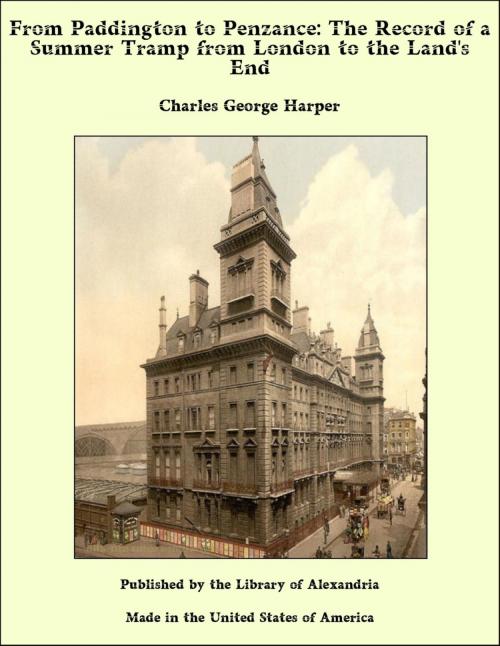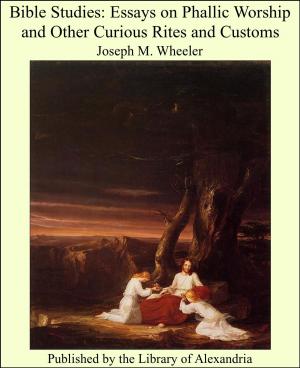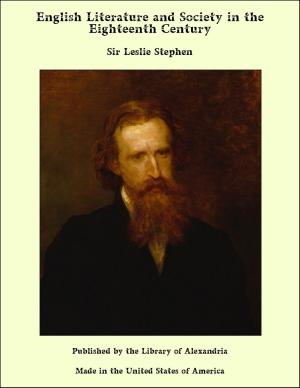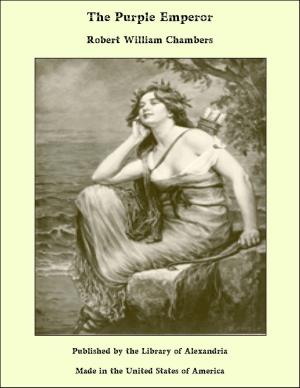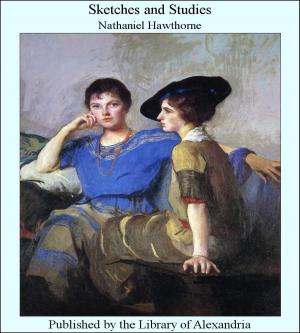From Paddington to Penzance: The Record of a Summer Tramp from London to the Land's End
Nonfiction, Religion & Spirituality, New Age, History, Fiction & Literature| Author: | Charles George Harper | ISBN: | 9781465625564 |
| Publisher: | Library of Alexandria | Publication: | March 8, 2015 |
| Imprint: | Language: | English |
| Author: | Charles George Harper |
| ISBN: | 9781465625564 |
| Publisher: | Library of Alexandria |
| Publication: | March 8, 2015 |
| Imprint: | |
| Language: | English |
There were two of us: myself, the narrator, the artist-journalist of these truthful pages, and my sole companion, the Wreck. Why I call him by this unlovely title is our own private business, our exclusive bone of contention; not for untold gold would I disclose the identity of that man, the irresponsible, the nerveless, mute, inglorious fellow-wayfarer in this record of a summer’s tour. Let him, nameless save by epithet, go down with this book to a more or less extended posterity. But I give you some slight portraiture of him, so that you shall see he was not so very ill-favoured a Wreck, at any rate. This man, willing to be convinced of the pleasure and the healthful profit of touring afoot, yet loth to try so grand a specific for varied ills, delayed long and faltered much between yea and nay ere he was finally pledged to the trip; but a time for decision comes at last, even to the most vacillating, and at length we set out together on this leisured tour. It was time. When we left London the spirit of the silly season roamed abroad, and made men mad: the novelists were explaining diffusely in the columns of the public press why they wrote no plays; the playwrights were giving the retort discourteous (coram publico) to the effect that the novelists had all the will but didn’t know how, and the factions between them made any amount of copy for the enterprising editor who looked on and, so to speak, winked the other eye while the combatants contended. Unsuccessful Parliamentary candidates were counting the cost of their electoral struggles, and muttering melodramatic prophecies of “a time will come”; the eager journalist wandered about Fleet Street, seeking news and finding none, for the Building Societies had not yet begun to collapse; and the chiefest streets of town were “up.” Those happy men, the layers of wood-paving, had created a delightful Rus in Urbe of their own in Piccadilly, and enjoyed a prolonged sojourn amid such piney odours as Bournemouth itself never knew: here was health-giving balsam for them that had no cash to spend in holiday-making! But indeed almost every one had left town; only an unimportant residuum of some four millions remained, and wide-eyed emaciated cats howled dismally in deserted areas of the West End, while evening breezes blew stuffily across the Parks and set the Londoner sighing for purer air where blacks were not, nor the shouting of the streets annoyed the ear. If you take the reduced ordnance map of England, and rule a straight line upon it from Paddington to Penzance and the Land’s End, you will find that the distance by this arbitrary measurement is some 265 miles, and that the line passes through or near Staines, Basingstoke, Salisbury, Exeter, Truro, and Redruth, to Penzance and Sennen Cove, by Penwithstart, touching the sea at three placesen route—Fowey, Par, and Charlestown, neighbouring towns in Cornwall. The most direct coach-road is given by Cary, of the New Itinerary, as 297 miles 5 furlongs. It was measured from Hyde Park Corner, and went through Brentford, Hounslow, Staines, Egham, Bagshot, Hartford Bridge, Basingstoke, Whitchurch, Andover, Salisbury, Blandford, Dorchester, Bridport, Axminster, Honiton, Exeter, Crockernwell, Okehampton, Launceston, Bodmin, Redruth, Pool, Camborne, Hayle River, and Crowlas. The route, it will be seen from this breathless excerpt, was commendably direct, thirty-two miles only being added by way of deviation from the measured map. On this road, so far as Exeter at least, much might be gleaned of moving interest in matters of coaching times, but beyond the Ever Faithful City no first-class nor very continuous service seems to have been maintained: the Royal Mail, Defiance, Regulator, Traveller, Celerity, and Post coaches finding little custom farther west.
There were two of us: myself, the narrator, the artist-journalist of these truthful pages, and my sole companion, the Wreck. Why I call him by this unlovely title is our own private business, our exclusive bone of contention; not for untold gold would I disclose the identity of that man, the irresponsible, the nerveless, mute, inglorious fellow-wayfarer in this record of a summer’s tour. Let him, nameless save by epithet, go down with this book to a more or less extended posterity. But I give you some slight portraiture of him, so that you shall see he was not so very ill-favoured a Wreck, at any rate. This man, willing to be convinced of the pleasure and the healthful profit of touring afoot, yet loth to try so grand a specific for varied ills, delayed long and faltered much between yea and nay ere he was finally pledged to the trip; but a time for decision comes at last, even to the most vacillating, and at length we set out together on this leisured tour. It was time. When we left London the spirit of the silly season roamed abroad, and made men mad: the novelists were explaining diffusely in the columns of the public press why they wrote no plays; the playwrights were giving the retort discourteous (coram publico) to the effect that the novelists had all the will but didn’t know how, and the factions between them made any amount of copy for the enterprising editor who looked on and, so to speak, winked the other eye while the combatants contended. Unsuccessful Parliamentary candidates were counting the cost of their electoral struggles, and muttering melodramatic prophecies of “a time will come”; the eager journalist wandered about Fleet Street, seeking news and finding none, for the Building Societies had not yet begun to collapse; and the chiefest streets of town were “up.” Those happy men, the layers of wood-paving, had created a delightful Rus in Urbe of their own in Piccadilly, and enjoyed a prolonged sojourn amid such piney odours as Bournemouth itself never knew: here was health-giving balsam for them that had no cash to spend in holiday-making! But indeed almost every one had left town; only an unimportant residuum of some four millions remained, and wide-eyed emaciated cats howled dismally in deserted areas of the West End, while evening breezes blew stuffily across the Parks and set the Londoner sighing for purer air where blacks were not, nor the shouting of the streets annoyed the ear. If you take the reduced ordnance map of England, and rule a straight line upon it from Paddington to Penzance and the Land’s End, you will find that the distance by this arbitrary measurement is some 265 miles, and that the line passes through or near Staines, Basingstoke, Salisbury, Exeter, Truro, and Redruth, to Penzance and Sennen Cove, by Penwithstart, touching the sea at three placesen route—Fowey, Par, and Charlestown, neighbouring towns in Cornwall. The most direct coach-road is given by Cary, of the New Itinerary, as 297 miles 5 furlongs. It was measured from Hyde Park Corner, and went through Brentford, Hounslow, Staines, Egham, Bagshot, Hartford Bridge, Basingstoke, Whitchurch, Andover, Salisbury, Blandford, Dorchester, Bridport, Axminster, Honiton, Exeter, Crockernwell, Okehampton, Launceston, Bodmin, Redruth, Pool, Camborne, Hayle River, and Crowlas. The route, it will be seen from this breathless excerpt, was commendably direct, thirty-two miles only being added by way of deviation from the measured map. On this road, so far as Exeter at least, much might be gleaned of moving interest in matters of coaching times, but beyond the Ever Faithful City no first-class nor very continuous service seems to have been maintained: the Royal Mail, Defiance, Regulator, Traveller, Celerity, and Post coaches finding little custom farther west.
